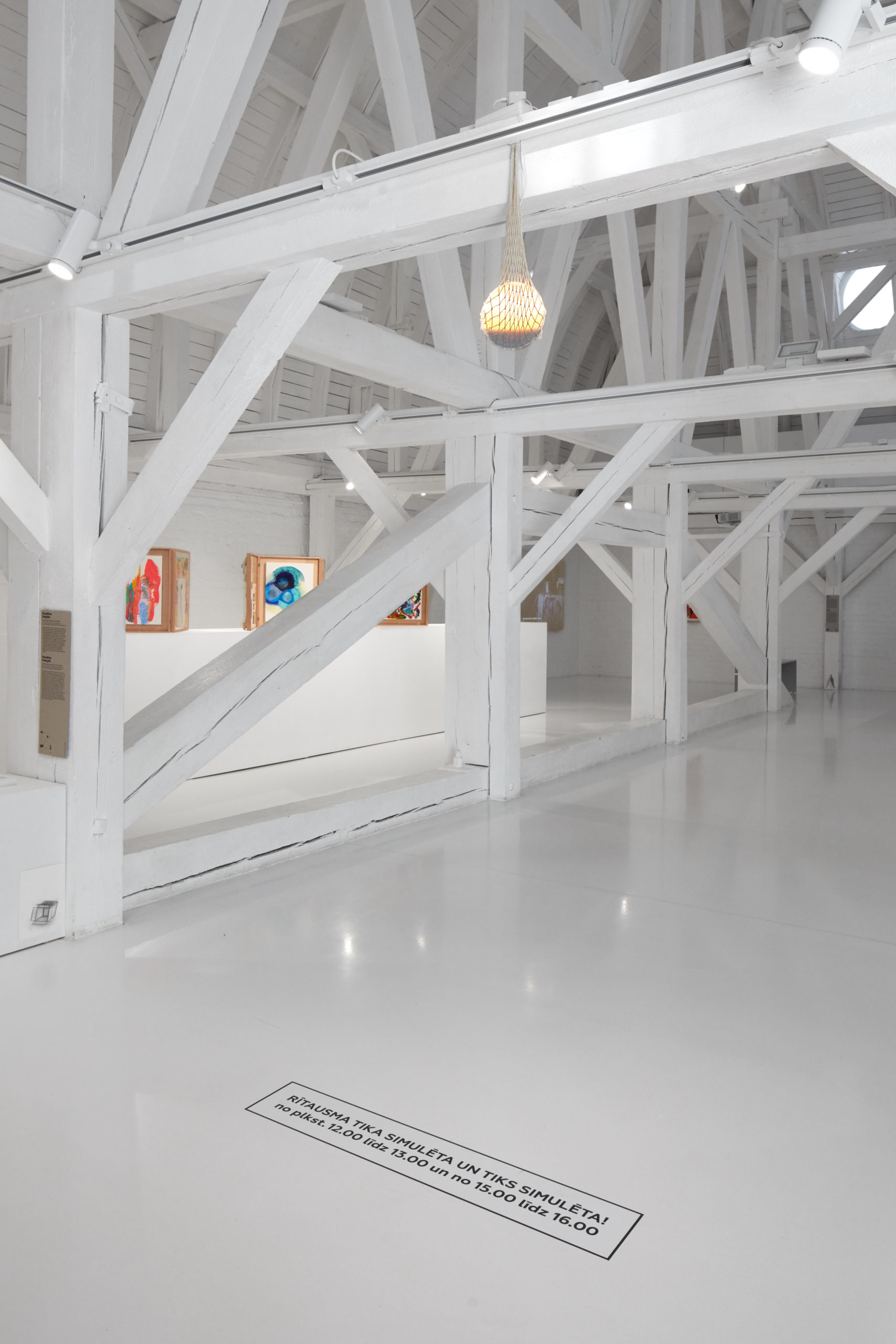Paulina Pukytė dawn has been simulated and will be simulated from 12:00 until 13:00 and from 15:00 until 16:00 | 2020
Household dawn simulator programed to turn on and off twice a day, string bag “avoska” (“what if”), text on the floor
Audio guide to this piece
The dawn, which also features in the Latvian coat of arms, is the symbol of a new beginning, and a promise of a better future—“the bright tomorrow”—but it has also been discredited as such by the totalitarian ideology of Soviet Communism. Here it appears as a reminder of that period of lies, albeit in its new, consumerist guise: a simulation, a fake, a mass-produced personal substitute for the real phenomenon, that can be programmed to occur anytime, even more than once per day, and is supposed to give you a soothing, calming sensation. The text on the floor suggests the coexistence of the past and the future, and the (inevitable?) repetition of history.
The string bag, ‘avoska’, that holds this artificial sun is a well-known object from the Soviet period—“what if I come across something to buy?” Today it also has both optimistic and pessimistic connotations: as well as being a reminder of poverty during the planned economy, it can also symbolise (non)consumerism and is acquiring new life with current movements of sustainability and zero waste, as a choice of reusable and ecologically friendly shopping bag instead of a disposable plastic one.
Paulina Pukytė
Paulina Pukytė is a Lithuanian artist, writer and curator based in London. She writes critical and satirical articles on art and cultural issues, as well as experimental literature, poetry and plays. She makes site-specific interventions, still and moving image and conceptual projects using found artefacts, often employing coincidence and chance. She is also involved in the discourse of public space and commemoration and in 2017 curated the 11th Kaunas Biennial There And Not There: The (Im)Possibility Of A Monument.


